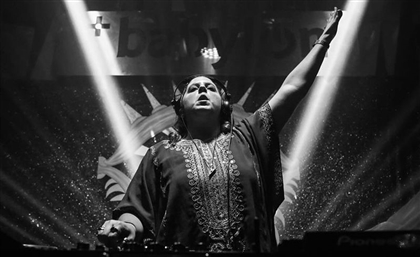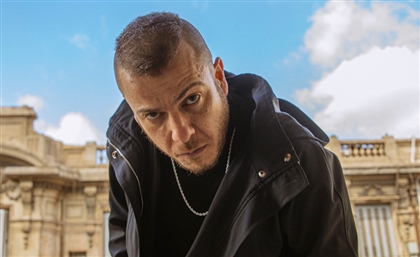47Soul's Mosaic Sounds Strike An Arab Musical Chord
Before their takeover at CJC, the Palestinian-Jordanian band talks Shamstep, Arab identity, and musical fusion with one very excited Sanabel al-Najjar.
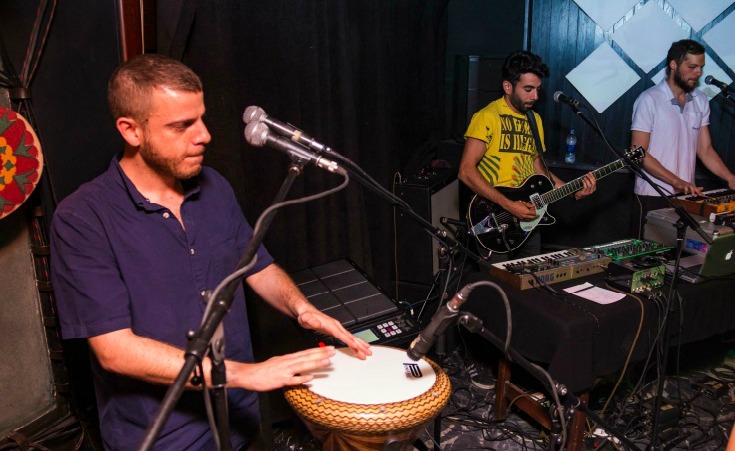
Relieved that I would now get to escape the small oven that was the car during one of Cairo’s furiously hot days, I hurriedly pay the driver and run towards Flamenco Hotel in Zamalek where they should be waiting for me. I step into the small hotel and take a long cool breath, feeling the heat peel off my skin like a dry invisible membrane. As I was walking towards the reception to ask about 47Soul’s band members, I glance and see Hamza (aka El Jehaz, 47Soul's vocalist and guitarist) sitting on a couch. I smile and shake hands, apologising for the hectic state I must have been in, and my ears register with content the ‘kefek?’ greeting that I have missed, now hearing it from someone who spoke my language, literally.
So many questions were running through my head about the stunning musical works produced by this mosaic of a band that merges the familiar and the foreign in a mesh that transcends time and a dozen geographical boundaries. Introducing the genre called ‘Shamstep’, 47Soul attempt through their musical collisions to create a new taste of music composed of all the flavours modern youth are more or less exposed to, such as Electronic music and the distinctly Shami mijwez music. When I first heard their songs, the music was a blasting explosion to my mind because it had tied together deeply distinct elements of my culture and upbringing as a Palestinian to modern music such as Electronic tunes and English lyrics.
I directly ask el-Jehaz about the musical effect of the meshing of worlds and times together in this musical by product, and wonder about how he thinks it affects the message the songs try to get across. “We like to blend those types of music together because we are personally affected by them,” he tells me. “The four of us are affected by mijwez, Rock, Reggae, and other musical genres and elements from around the world.” El-Jehaz explain that there was no planned intention of adding a certain element with another and that it was just a spontaneous meshing of the kind of music each member likes.
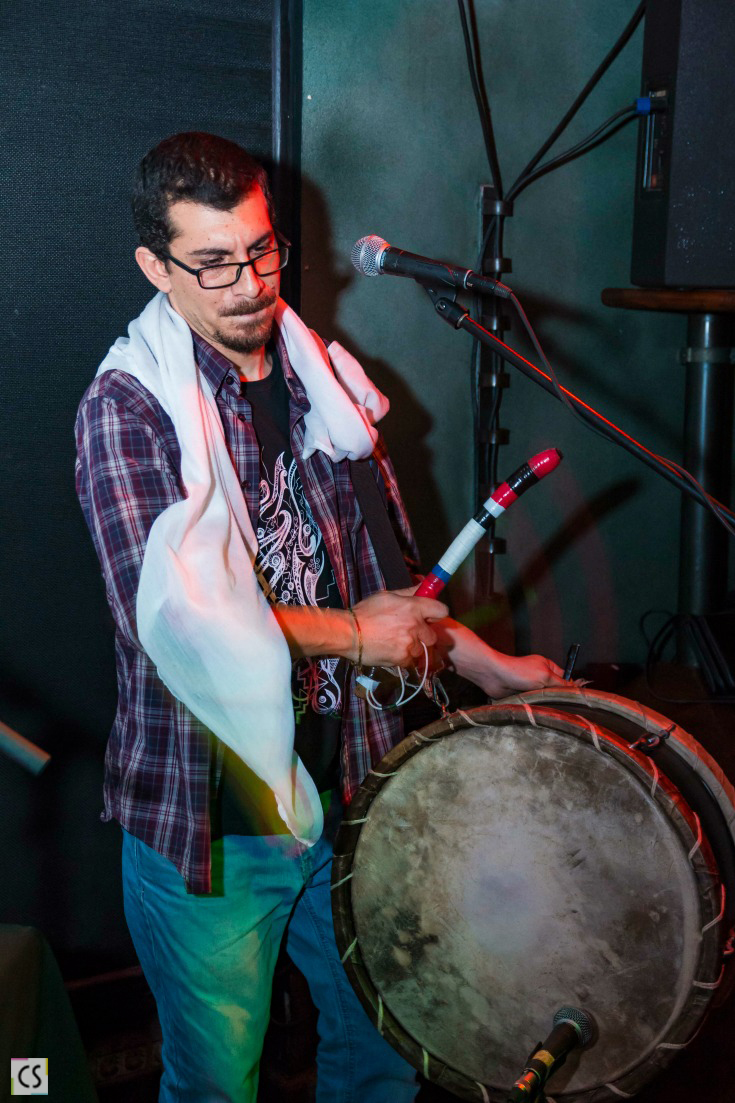
El-Jehaz explains that people’s potential receptiveness of the music (or lack thereof) was not the driving force behind their musical composition, but their own enjoyment of the music and the love for it. At this point, Tareq (aka El Far3i), walks in and I ask him whether he remembers me from an interview (the very first interview I ever conducted) a few years back in Amman. I was thrilled to be shaking hands again with the man who sang “ta7t el ard khaleiki, borkan byetghazal feeki, khally el jedour te7meeki, batraja feeki,” which translates to “Stay under the ground, a volcano praising you, let the roots protect you, I’m begging you.” The song, among others in his solo project, El Far3i, had given me all the determination I needed for writing my crazy long and dense papers as part of my studies in Canada, something he even mentions shortly after our greeting. And as we recall that interview in Amman, El Far3i tells me, “it was great to realise that our kind of music actually helps people make better sense of the world – and their studies. It proved that such music speaks to this generation and actually takes space in what they study and focus on, even if the subject is not necessarily related to music altogether, rather than something that is irrelevant.” The constant genuine nodding of my head must have indicated to the musician that I absolutely agree with him.
Continuing our conversation, El Far3i added that “however, we did expect that people would easily identify some of our sounds and the areas they have emerged from, like mijwez.” El Far3i tells me that 47Soul did not come up with the idea of playing mijwez internationally, “but that our music reflects who we are personally. The reason we have English lyrics in the songs is because Ramzi (aka Z The People) is Palestinian-American and the use of English lyrics reflects his presence in this musical composure.” This, El Far3i explains, is because 47Soul addresses not only the Arab World but also Arabs living abroad with strong ties to their roots.
“Our musical project strikes the Arab at a deeper level than it does with a foreigner,” he adds. “Of course, if the latter is receptive of the project, then they are most welcome of course. We have English lyrics because of Ramzi; if one of our members spoke Dutch, then that’s the language you should expect to leave traces in our songs as well. The aim is to address the entire world with (and about) the Arab mind.”
Upon asking the band members (now three with Walaa joining a little after Tareq), whether they had anticipated the potential reaction of people getting upset about infusing otherwise ‘purely’ traditional musical genres with Western influences, El Far3i replies that “Walaa’s background is dabkeh, for instance, while mine is Alternative Rock as a musician and performer, and so it was never about fusing something with something else.”
“We’re used to this music, which we hear all around us. It’s like you’ve just watched a movie and afterwards paint an artwork inspired by it. So, in this case, your painting (and how flattering that sounded) was not a direct replication of the movie but a reflection of some of its elements. This is exactly us with mijwez, where we never incorporate it in its ‘pure’ classic form but are affected and inspired by it,” he elaborates.
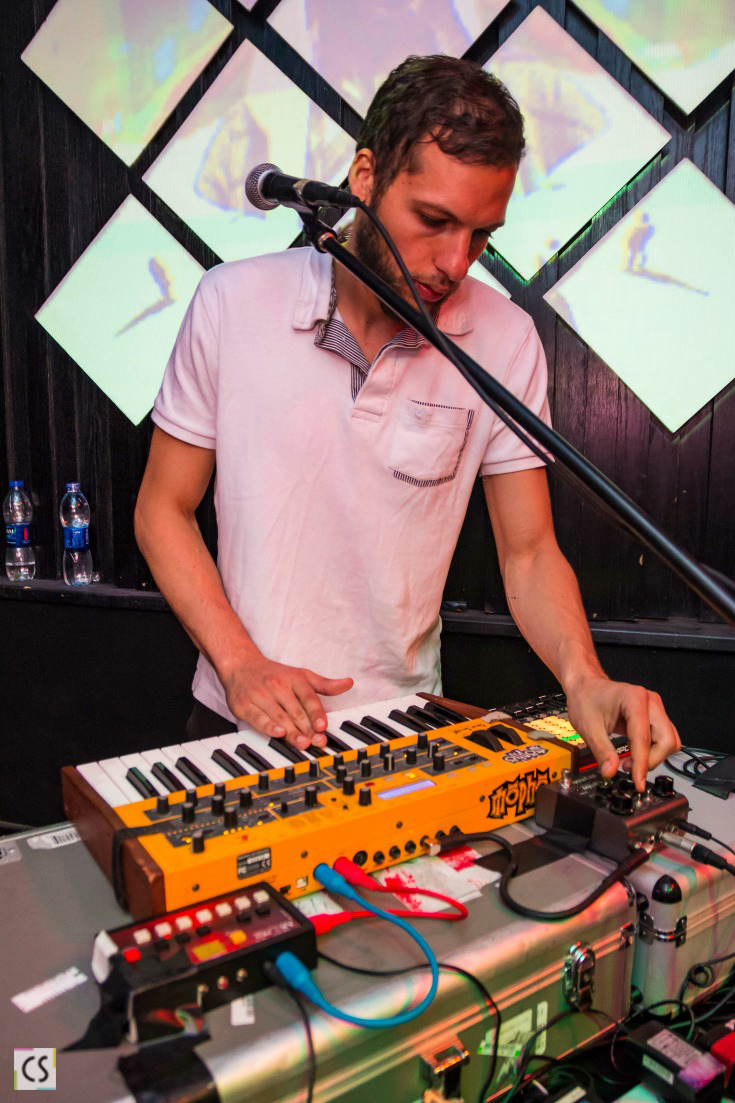
“People will say this is our heritage at this point in time," El Far3i adds, upon which Walaa explains adds that it is exactly what inspired him to join the other musicians with the project. “There is something of the same soul, or identity. I felt that the communication was Bedouin and the singing cultural, and the voice mountainous in the case of Tareq even though he sang in Rap form at times and Alternative Rock.” The soul of the band is inquisitive and introspective, “and that makes our core,” says Tariq.The band members explain, each from his own viewpoint, about the separation (or lack thereof) between music and political or national messages. “Even the personal articulation of a certain state is in itself a reflection of a social state or a phenomenon,” El Far3i replies. “But we try to neutralise music from this dilemma in the sense that we always try to reflect what is relative in everyday life and familiar.”
Walaa then tells me that “we find ourselves refusing to be cast or categorised as a ‘national’ band or a ‘romantic’ one, or even a festive ‘wedding’ band. We are simply a genuine reflection of our atmosphere and surroundings, which are composed of struggle, love, poverty, pain, or even walking by the Nile corniche."
Forward six hours and I'm at the crowded Cairo Jazz Club with 47Soul blasting their music in the beautifully-decorated little hub. The moment they mount the small stage, people joyously chatting in Egyptian, Palestinian, and Jordanian dialects move closer to the stage. Once the music heats up, I watch, as goosebumps take over my arms, Arab youth radiating with happiness while an almost painfully-deep sense of joy infects them as they break into dance and the Palestinians among them into professional dabkeh.
I join them in dance while suppressing an urge to break into tears because of the magnitude of the realisation that, yes, the Arabs have and are still suffering one crisis after another, but look at us dance and celebrate life. It was at that moment that El Far3i’s words, let the roots protect you', made an even deeper indent on my heart, driving me to dance and clap harder and with ever more passion.
Photo shoot by @MO4Network's #MO4Productions.
Photography by Mohamed Ali.
- Previous Article Halal or Not? Using Snapchat Filters
- Next Article What We Know About EgyptAir Flight 804's Disappearance Over The Mediterranean




